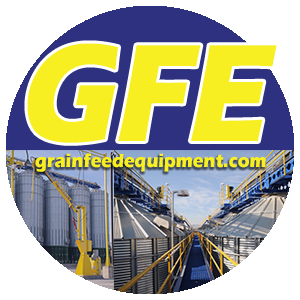Company Profile
Argonics
Argonics, Inc.
• 906-226-9747 • http://www.argonics.com

LIGHTWEIGHT, DURABLE URETHANE SHEETING FOR THE GRAIN HANDLING INDUSTRY
Reprinted from GRAIN JOURNAL November/December 2018 Issue
The story of Argonics starts in Colorado during the 1960s with a company named Kryptonics, a producer of a range of industrial products for the mining and printing industries. Kryptonics developed proprietary urethane formulations, marketed as Kryptane®, which became an industry leader in the urethane world.
During the mid-1970s, Kryptonics began producing skateboard and roller-skate wheels and quickly became one of the world’s largest manufacturers of polyurethane skateboard and roller-skate wheels.
In early 1993, Kryptonics moved its operations from Boulder, CO to Louisville, CO. At the same time, it sold its mining and industrial division to Bob Flood, who incorporated it under the name Argonics, Inc.
“Initially, Argonics was founded to support wear components for the mining industry,” recalls John Sheahan, technical sales specialist. “From there, it branched out into a lot of different things – concrete batch plants, aggregate sand and gravel, and grain liners.”
In the late 1990s, the line of roller-skate and skateboard wheels made by Kryptonics was also sold, including the company name and trademark, leaving a small urethane manufacturing plant operating as Kryptane Systems. In 2006, Argonics purchased Kryptane Systems, securing the rights to the proprietary urethane formulations.
By 2009, Argonics had grown to capacity at its Marquette, MI location, which was spread over five separate buildings and totaled 40,000 square feet. Because of this growth, the company signed a lease agreement for a 72,000-sq.-ft. facility in Gwinn, MI (about 20 minutes away) on the site of a decommissioned Air Force base.
Extensive renovation was put into the Gwinn location, finally bringing the entire Michigan operation under one roof.
Today, Argonics has a presence in 33 countries, covering all but one continent, and employs 80 people between its Michigan and Colorado locations.
Argonics strives to work as a team to meet a common goal: customer satisfaction.
If you have a hard-to-solve wear problem, Argonics will work with you to find a solution. The company has built its reputation on the achievement of providing cost-effective results for some of the most demanding applications around the world.
"It's pretty common for a customer to come to us with a wear or impact issue they're having with a liner, and we'll develop something that solves the problem," he says. "We take pride in that specialized service.
The importance of concept and product development, as well as product implementation and quick turnaround time, are all a part of Argonics' customer commitment.
“We’re very attentive to customer needs, and co-development is a significant part of that,” he adds. “We have chemical and mechanical engineers on staff to work closely with customers to tweak products to better fit their processes.”
Argonics serves the grain and agriculture industry with products designed for chutes, distributors, elbows, spouts, screw/drag conveyor troughs, belt wipers and skirting, bucket elevator head sections, and transitions.
The company’s Kryptane Xtreme product is what Sheahan regards as an exceptional liner for grain handling, available in a wide variety of sizes and backing materials. It’s also FDA dry good handling approved.
“It’s an ether-based polyurethane sheet,” Sheahan explains. “It sounds cliché, but it is regarded as the Cadillac or Mercedes-Benz of the industry.”
The Blue Ox product line is another sheet option Argonics manufactures.
“Blue Ox, our economy line of polyurethane sheets, is made from a polyether-based polyurethane,” he says. “That’s an important distinction, because our competition’s value line sheets are all made from polyester polyurethane.”
According to Sheahan, Argonics chooses polyether over polyester due to its ability to wear well in hot, humid environments. Polyester is far more susceptible to heat and humidity, resulting in hydrolysis and sheet degradation.
About Argonics, Inc.
Gwinn, MI
906-226-9747
http://www.argonics.com
View Company Profile →

